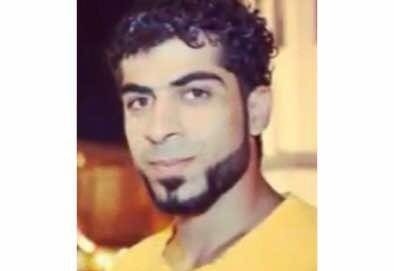Moosa Abdulla Jaafar is a former student who was harassed by the Bahraini police, tortured, and sentenced to death in an unfair trial. He is currently in Jau Prison, at risk of execution.
On 26 April 2016, plainclothes police officers arrested Moosa on the street in Karranah. The officers provided a warrant issued by the Ministry of Interior’s Criminal Investigations Directorate (CID). The police did not inform his family that he had been arrested, and they only learned of his detention later after speaking to witnesses.
Moosa had been wanted by the police since 2012 for his participation in protests, alleged damage caused to VIVA Telecom Company, and for the alleged burning of tires. Officers raided his home more than 30 times prior to his 2016 arrest. The officers took Moosa to the CID, where they tortured him for two weeks. Officers beat him and attempted to coerce a confession from him. They threatened to inject him with an unknown substance if he did not confess and name other individuals as his co-conspirators. They brought in a doctor, who injected him with the substance, but Moosa still did not confess. The officers held him in a confined cell of approximately two meters for five days, then transferred him to Jau Prison.
The Office of Public Prosecution charged Moosa with burning tires, killing a policeman, and injuring other police and civilians in a bombing in Karranah in 2015, among other charges. On 1 February 2018, Moosa was sentenced in a collective judgment along with 31 other individuals. The Fourth High Criminal Court sentenced Moosa to more than 100 years in prison for the lesser charges and the death penalty for the bombing of Karranah. Of the 31 other defendants, the Court sentenced 13 to life in prison, eight to 15 years in prison, four to three to five years in prison, and acquitted six. The Court also stripped Moosa and 24 others of their nationality.
On 1 February 2018, the prison authorities transferred Moosa to Building 1 in Jau, the oldest building in the prison, where individuals awaiting execution are held. Prisoners in Building 1 live in unhygienic and cramped conditions – there is only one bed per cell, and it is only wide enough for one prisoner to sleep on his side. The prison authorities hold two prisoners in each cell, so the other prisoner is forced to sleep on the floor.
The Government of Bahrain has violated a number of international legal principles enshrined in the Convention Against Torture and Other Forms of Cruel, Inhuman and Degrading Treatment (CAT), the International Covenant on Civil and Political Rights (ICCPR), and the International Covenant on Economic, Social and Cultural Rights (ICESCR). Bahrain is a party to each of these treaties. The use of torture is prohibited in both the CAT and the ICCPR (Article 7), and the cramped conditions of Moosa’s detention are in violation of Article 10 of the ICCPR and Article 12 of the ICESCR.
ADHRB calls on Bahrain to suspend implementation of the death penalty, annul Moosa’s conviction and ensure that any subsequent trial follows international fair trial standards, investigate his allegations of torture by CID officers, and address the overcrowding and poor conditions in Building 1.





